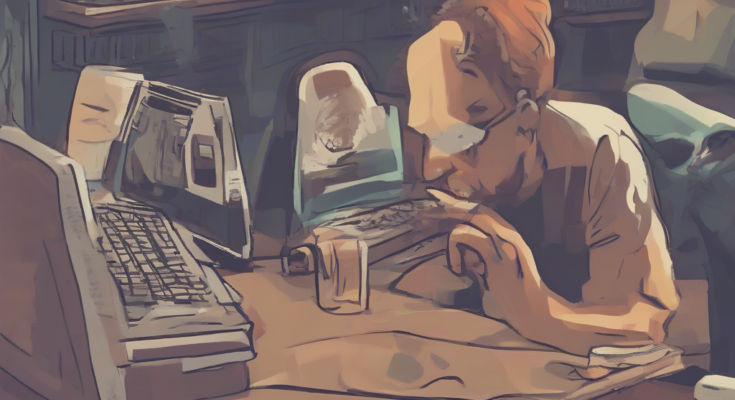Recovery Now Louisville KY: Your Path to Wellness Begins Today
Are you or someone you love struggling with addiction? Recovery Now Louisville KY is here to help. We offer a wide range of addiction treatment services, all designed to help you achieve lasting recovery.
What We Offer
- Detoxification
- Inpatient treatment
- Outpatient treatment
- Intensive outpatient program (IOP)
- Medication-assisted treatment (MAT)
- Therapy
- Support groups
- Aftercare planning
Why Choose Recovery Now Louisville KY?
- Experienced and compassionate staff: Our team of addiction professionals is dedicated to providing you with the highest quality of care.
- Personalized treatment plans: We understand that every person’s journey to recovery is unique. That’s why we develop personalized treatment plans tailored to your individual needs.
- Comfortable and safe environment: Our facility is designed to provide a comfortable and safe environment where you can focus on your recovery.
- Holistic approach: We believe that addiction is a complex issue that requires a holistic approach. Our treatment programs address the physical, emotional, and spiritual aspects of addiction.
- Affordable and accessible treatment: We offer a variety of payment options to make treatment affordable and accessible to everyone.
The Benefits of Addiction Treatment
Addiction treatment can help you:
- Break free from the grip of addiction
- Improve your physical and mental health
- Rebuild your relationships
- Achieve your goals
- Live a happy and fulfilling life
Ready to Start Your Journey to Recovery?
Contact Recovery Now Louisville KY today to learn more about our addiction treatment services. We are here to help you every step of the way.
What is Addiction?
Addiction is a chronic disease characterized by compulsive drug seeking and use, despite harmful consequences. It is a complex disease that can affect a person’s physical, mental, and emotional health.
Signs and Symptoms of Addiction
The signs and symptoms of addiction can vary depending on the substance being abused. However, some common signs include:
- Changes in behavior, such as increased secrecy, irritability, and withdrawal from social activities
- Physical changes, such as weight loss or gain, sleep problems, and tremors
- Cognitive changes, such as difficulty concentrating, forgetfulness, and impaired judgment
- Financial problems, such as debt, job loss, or legal issues
- Relationship problems, such as strained relationships with family and friends
- Tolerance, which is the need to use more of the substance to achieve the same effect
- Withdrawal, which is a set of symptoms that occur when the person stops using the substance
Types of Addiction
Addiction can affect people in many ways, and there are several different types of addiction. These include:
- Substance addiction: This is the most common type of addiction, and it involves the abuse of drugs and alcohol. Some examples of substance addiction include alcohol addiction, drug addiction, and opioid addiction.
- Behavioral addiction: This type of addiction involves engaging in certain behaviors to the point of causing harm to oneself or others. Examples of behavioral addiction include gambling addiction, sex addiction, and internet addiction.
- Process addiction: This type of addiction involves becoming addicted to a process or activity. Examples of process addiction include shopping addiction, work addiction, and exercise addiction.
The Effects of Addiction on the Brain
Addiction is not a matter of choice. It’s a disease that affects the brain, changing the way it functions. The brain is made up of billions of nerve cells that communicate with each other using chemicals called neurotransmitters. When a person uses drugs or alcohol, these substances can interfere with the brain’s communication system. Over time, this interference can lead to changes in the brain’s structure and function. These changes can make it difficult for the person to control their drug use and can lead to other health problems.
The Reward System
The brain has a reward system that is responsible for making us feel good. When we do something pleasurable, like eating food, having sex, or spending time with loved ones, our brain releases dopamine, a neurotransmitter that produces feelings of pleasure. Drugs and alcohol also stimulate the reward system, but they do so in a much more intense way. This can lead to a person becoming addicted to the drug or alcohol and seeking it out even when it is causing harm.
Tolerance and Withdrawal
When a person uses drugs or alcohol repeatedly, their body can become tolerant to the substance. This means that the person needs to use more of the substance to achieve the same effect. This is because the brain has become accustomed to the substance and has reduced the number of dopamine receptors. This is also why withdrawal symptoms occur when a person stops using the substance. The body is now lacking the substance it has become accustomed to and is experiencing a physical and mental imbalance. Withdrawal symptoms can range from mild to severe and can include anxiety, depression, insomnia, nausea, vomiting, and seizures.
The Impact of Addiction on Individuals and Families
Addiction can have a devastating impact on individuals and families. Not only does it affect the addict’s physical and mental health, but it can also damage relationships, cause financial problems, and lead to legal trouble.
The Addict
Addiction can take a heavy toll on the addict. It can lead to physical and mental health problems, such as liver damage, heart disease, depression, anxiety, and suicidal thoughts. Addiction can also cause job loss, financial problems, and legal trouble. The addict may also experience feelings of shame, guilt, and isolation.
The Family
The families of addicts often suffer as well. They may experience emotional distress, financial strain, and relationship problems. They may also feel angry, frustrated, and helpless. The family may also feel a sense of stigma and embarrassment. The addict’s behavior can be unpredictable and often destructive, causing stress and tension in the family.
Recovery from Addiction
Recovery from addiction is possible, but it is a long and challenging process. It requires dedication, support, and a willingness to change.
Types of Addiction Treatment
There are many different types of addiction treatment available, and the best option for each person will depend on their individual needs. Some common types of treatment include:
- Detoxification: This is the first step in the recovery process, and it involves safely withdrawing from the substance. It can be a very difficult and uncomfortable process, but it is essential for the addict to be able to begin the recovery process.
- Inpatient treatment: This is a residential program where the addict lives at the facility and receives 24/7 care. This type of treatment is often used for people who are experiencing severe addiction or who need a structured and supportive environment.
- Outpatient treatment: This type of treatment involves attending therapy sessions and support groups on an outpatient basis. This type of treatment is often used for people who are able to function in their daily lives but need additional support to stay sober.
- Intensive outpatient program (IOP): This is a type of outpatient treatment that involves more frequent and intensive therapy sessions. This type of treatment is often used for people who are transitioning from inpatient treatment or who need a higher level of support.
- Medication-assisted treatment (MAT): This type of treatment uses medications to help reduce cravings and withdrawal symptoms. MAT can be very effective in helping people stay sober, but it is important to note that it is not a cure for addiction. It is important to combine MAT with therapy and support groups.
- Therapy: Therapy can help addicts understand the root causes of their addiction and develop coping skills to manage their cravings. It can also help them address the emotional and psychological issues that may have contributed to their addiction.
- Support groups: Support groups provide a safe and supportive environment for addicts to connect with others who are in recovery. They can share their experiences, offer support, and provide encouragement.
The Importance of Aftercare Planning
Aftercare planning is an essential part of the recovery process. It involves developing a plan to help the addict maintain their sobriety after completing treatment. This may include attending support groups, working with a therapist, and finding a sober living environment. Aftercare planning is essential for helping addicts stay on track and avoid relapse.
Living a Life in Recovery
Recovery from addiction is a lifelong journey, and it is important to remember that it is not a straight line. There will be ups and downs, and there may be times when the addict feels like they are going to relapse. However, with the right support and resources, recovery is possible. It’s important to focus on living a healthy and fulfilling life. This may include:
- Developing a strong support system
- Finding healthy coping mechanisms for stress and cravings
- Staying active and engaged in activities you enjoy
- Setting goals and working towards them
- Practicing self-care
- Continuing to attend support groups
- Working with a therapist
Recovery Now Louisville KY: Helping You Find Your Path to Wellness
Recovery Now Louisville KY is here to help you or someone you love find the path to wellness. We offer a wide range of addiction treatment services, all designed to help you achieve lasting recovery. If you are struggling with addiction, please don’t hesitate to contact us. We are here to help you every step of the way.



